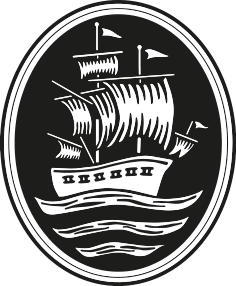Pupil Premium (Educational Equity) Strategy Plan
Click here to view the policy document
Statement of intent
At Thomas Knyvett College, our mission is to provide great learning which changes lives.
It is our absolute priority to minimise the impact that potential socio-economic disadvantage can have on the progress, wellbeing and prospects of our students.
We also acknowledge that education disadvantage can come in many forms, and so commit to taking all possible actions to ensure equity of opportunity for all members of our community.
We therefore refer to our disadvantaged/pupil premium policy as our ‘Educational Equity Strategy. We have sought to remove all language contributing to the ‘deficit discourse’ in recognition of the positive contribution to our culture and community all students make, regardless of socio-economic status.
Therefore, the scope of this strategy has broadened as it seeks to ensure an equity of opportunities for all students, including, but not limited to, students in receipt of the pupil premium funding because of socio-economic status.
We believe it is particularly important now, given the difficulties many of us have faced in recent years, that we recognise that lots of families find themselves in challenging contexts, and we have a responsibility to implement a variety of strategies which support the full range of students who could benefit from them, and to make sure our support for students is such that that no individuals miss out on the support they need- pastorally or academically.
We prioritise championing excellent teaching and learning practice. Our newly launched essential practice model, influenced largely by Alistair Smith’s Accelerated Learning Cycle (1996) provides a foundation for consistently effective learning in lessons. An intensive drive on raising standards across the school means that these lessons are facilitates by a culture of organised routines and high expectation- meaning that learning is prioritised in all scenarios. As a result, our potentially disadvantaged students are provided with a consistent learning experience through our curriculum to ensure progress for all.
We also have a determined focus on accurate diagnostics and screening. This includes a focus on collecting and responding to regular, accurate academic assessment and progress data. It also includes our annual ‘Access to education Survey’, which all students participate it, designed to diagnose any potential barriers to provisions in our student community. This process allows us to quickly respond to the needs of our students in terms of providing IT and intent access at home, uniform and equipment provision, young carer support and access to appropriate reading material.
Reading is the most important area in which this diagnostic approach can have a transformational impact on student lives. Our reading intervention programme quickly identifies any students struggling with reading and identifies the specific nature of their reading need. We then offer a range of intensive reading intervention programmes to address this need. In our first year of this strategy, we reduced the number of ‘very low’ readers in the school by 30% and the programme has continued to reduce this number further in the two years since. We also take a whole-school approach in our dedication to reading- making sure in the classroom, the reciprocal reading technique teachers use to address texts, helps both our weaker readers to improve, and our stronger readers to participate in high-challenge dialogue around reading.
We are committed to continuing to broaden our full cultural offering to all students, to make sure that any potentially educationally disadvantaged members of our community have the opportunity to experience a vast range of enriching cultural experiences. We run a range of extracurricular clubs- including a performing arts club that perform Christmas and End of Year productions, sports clubs which participate in training and fixtures, an on-site fitness suite available to students, and a cooking club amongst others. We run a range of educational visits- including a new ‘enrichment day’ which will offer an annual trip off site to all students in the school. We also have an extensive careers and post-16 support programme which exposes students to the full range of options for their next steps with speakers from different industry sectors, colleges and universities in school each week to talk to students. We run a free breakfast bagel club at the start of each day and our inclusion department provide a robust network of support for our SEND students including ELSA interventions, East to West and NHS mental health and wellbeing support.
This broad cultural offering, supported by our PSHE/ 5Cs curriculum, delivered in weekly lessons with Unifrog’s careers and PSHE programmes, provides our students with a strong foundation for their personal development and builds a clear sense of belonging in our community. We are determined to make sure that as a result of this attendance and behaviour is excellent- and that disadvantaged students are not disproportionately represented in attendance and suspension data.
These strategies have been determined by a synthesis of the most up to date research and collaboration with partners include expertise with The Howard Partnership Trust, participation in programmes with The Greenshaw Learning Trust and School Alliance for Excellence, Ofsted’s Improving Reading is Secondary Schools report, and the Pupil Premium best practice guide produced by the Education Endowment Foundation.

